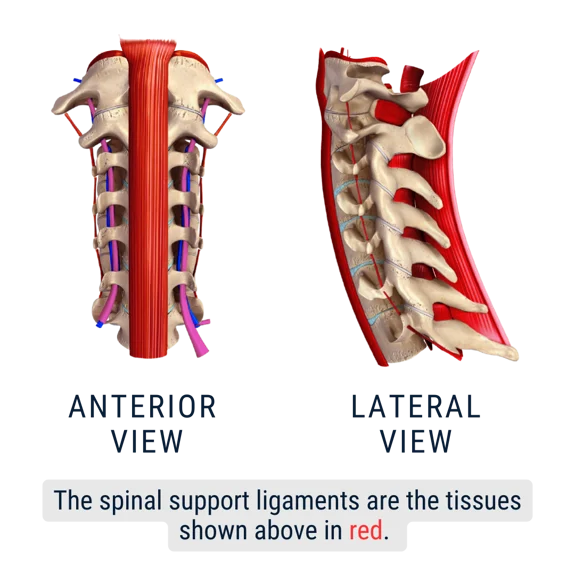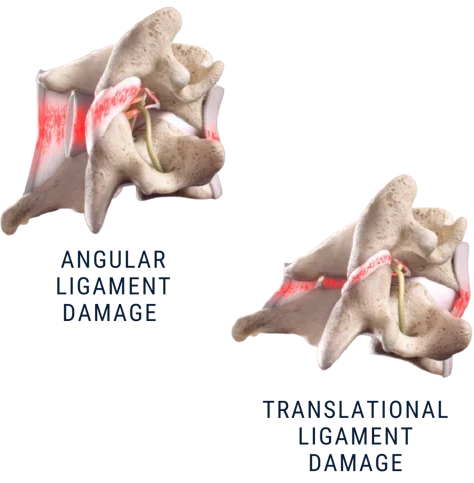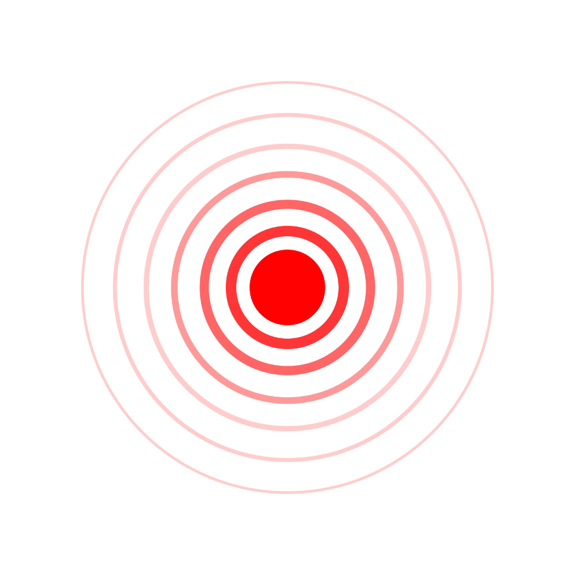Spinal Support
Ligament Damage 101
Understanding and diagnosing ligament damage & injury plays a critical role in accurately evaluating and treating spinal injuries in patients.
What Is Spinal Ligament Damage?
A spinal support ligament injury, also known as a "spinal ligament sprain" is any damage to the soft tissue support ligaments in the spine which causes excessive motion in the vertebral joints and spinal instability.
"A sprain is a stretching or tearing of ligaments - the tough bands of fibrous tissue that connect two bones together in your joints." - Mayo Clinic

Where Is It?
In and around the spine, there are 220 different ligaments, 23 of these are the vertebral discs and 197 of them are the spinal support ligaments. These ligaments support the vertebrae and hold them in place. Let's take a look at part of the spine illustrated:
“You cannot determine the severity and location of a spinal ligament injury without an excessive motion test."
- Jeffrey Cronk, CEO Spinal Kinetics
Mechanism of Injury
When the ligament tissue is over-stretched the phenomenon is much like overstretching a rubber band to the point that it loses some of its elasticity.
It will never regain the tautness it once had. In this way, after the spinal ligaments are damaged, they allow for excessive motion in the vertebral joints which causes instability in the spine.


What are the Symptoms?
Some of the symptoms of cervical or lumbar sprains (AKA spinal support ligament injury) include, but are not limited to:
Neck pain
Headaches
Shoulder, scapular and/or arm pain
Visual disturbances (e.g. blurred vision)
Tinnitus
Dizziness
Concussion
Neurologic symptoms (e.g. weakness, numbness, parasthesia)
Difficulty sleeping due to pain
Disturbed concentration and memory
Lower back pain
Pain going down the leg
How Is The Injury Diagnosed?
Through patient examination and X-ray. To determine how severe the spinal ligament damage is, you'll need a specialized report like the Computerized Radiographic Mensuration Analysis (CRMA™) report. The health of the ligament tissue is determined by the amount or lack of excessive motion in the spine. This is demonstrated by either high degrees of angulation or translation between two joints.

DID YOU KNOW?
The Computerized Radiographic Mensuration Analysis report utilizes technology with FDA-Cleared AI assistance to provide an objective report on spinal ligament damage injuries. The CRMA™ report is performed by Spinal Kinetics' board-certified medical radiologists all across the country.

